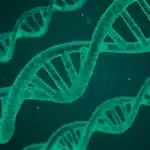Nikolay Semyonov (15 April 1896 – 25 September 1986) was a Russian/Soviet physicist and chemist. He was awarded the Nobel Prize in Chemistry in 1956 for his work on the theory of chemical reactions.
Life and Career
He was born on 15 April 1896, in Saratov, Russia. He received his early education at the Saratov Gymnasium, where he completed his secondary education in 1913. He then entered the Department of Physics and Mathematics at St. Petersburg State University and graduated with a degree in physics in 1917. He then continued his education at the same university, where he pursued a Ph.D. in physical chemistry under the supervision of Alexander Frumkin and received his doctorate in 1921.
After completing his Ph.D., he worked as a research assistant at the University of Leipzig and then at the University of Göttingen in Germany, where he worked with James Franck and Max Born. His work focused on the field of chemical kinetics, which is the study of the rates and mechanisms of chemical reactions. He made several significant contributions to this field, including the development of the concept of branching chain reactions, which explains how chemical reactions can propagate and accelerate rapidly under certain conditions.
He also conducted research on the oxidation of hydrocarbons, combustion, and polymerization, elucidating the mechanisms behind these processes. His work on the theory of chemical reactions helped to explain many fundamental concepts in chemistry, including how reactions proceed and how they can be controlled.
In addition to his work in chemical kinetics, Semyonov also played an important role in the development of the Soviet Union’s nuclear weapons program. During World War II, he headed a group of scientists who worked on the development of the first Soviet atomic bomb. He died on 25 September 1986, in Moscow, Russia.
Award and Legacy
He was awarded the Nobel Prize in Chemistry in 1956 for his work on the theory of chemical reactions. He was also awarded the Lenin Prize in 1957. He was a member of the Soviet Academy of Sciences and the International Academy of Quantum Molecular Science.
His legacy lives on through his contributions to the field of chemical kinetics, which continue to be relevant today in the study of chemical reactions and reaction mechanisms. His work on the theory of chemical reactions, including the concept of branching chain reactions, has helped to explain many fundamental concepts in chemistry and has been applied to various industrial processes, including the production of polymers, fuels, and explosives.
Observer Voice is the one stop site for National, International news, Editor’s Choice, Art/culture contents, Quotes and much more. We also cover historical contents. Historical contents includes World History, Indian History, and what happened today. The website also covers Entertainment across the India and World.










